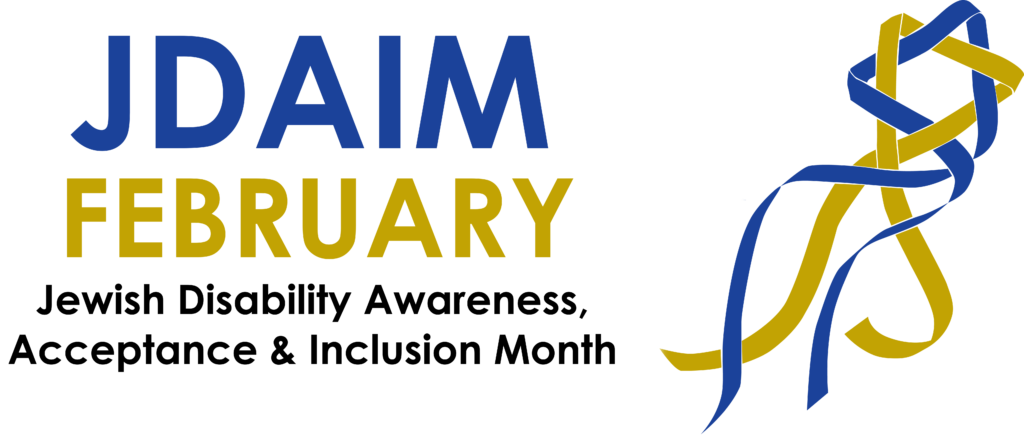As we have for several years now, here in the Columbus Jewish community we will be honoring JDAIM, Jewish Disability Awareness and Inclusion Month, this February. JDAIM (originally JDAM, the “I” for inclusion was added later) was started in 2008, at a gathering of the Jewish Special Education International Consortium in Minneapolis, MN.
The goal of JDAIM is to raise awareness and compassion for the members of our community who march to the beat of a different drummer. And while awareness is essential, just as the organizers of the original JDAM realized, inclusion of, and friendship with, people with disabilities, or differing abilities, and the families that love them, is of even greater importance.
I have found myself actively working to promote JDAIM since 2018. And every year, as one would expect, my own awareness of the complexity of inclusion deepens and broadens. This year I have particularly been wrestling with the idea of dignity.
Of course, in Judaism we have the perhaps the most basic lesson in dignity in the legend of Rabbi Hillel being asked to explain what the essence of Judaism is while standing on one foot. He is said to have quoted from Leviticus 19:18, saying, “What is hateful to you, do not do to your neighbor. That is the whole Torah; the rest is the explanation of this—go and study it!” These words would seem to ensure that we would be treating others with dignity, after all, none of us like to be treated disrespectfully, so we wouldn’t do that to someone else right? And what better recommendation for a religion than that its entire essence is to treat someone else well. I love that. I wish it were so!
Beyond this one verse in Leviticus, the Torah and all Jewish sources of teaching are full of examples of lessons on inclusion. Over and over, we are given the instruction of how to be inclusive. There is commentary on it and volumes and volumes of analyses. From my own observation of the world, it seems that all of these reminders are very necessary. But maybe the message isn’t getting through?
I keep thinking that maybe we need something even simpler to remember, so how about this: just don’t be mean. That is the current refrain singing through my head most days…just don’t be mean. I think that might be a simpler starting place, and once we have that down, perhaps we can forge ahead with treating others with dignity.
To that end, I have helped organize a number of community events this month. This Friday, Feb 4 at 7:30 PM we will have an online Kabbalat Shabbat around the theme of inclusion. The weekly parasha, Mishpatim, is full of rules and laws, including of course how to treat each other.
On Sunday Feb. 6 at 11:00 AM, I have helped organize an online event called Dignity and Inclusion: What do these look like when we think outside the box? As part of Jewish Columbus’s P2G program, we will be meeting with representatives from some wonderfully inclusive organizations in Kfar Saba, our partner city in Israel, to hear about some of the inclusion work that they are doing that has brought a broader sense of friendship to their city. This event is mostly geared to adults and older teens. (Click here to register.)
Additionally, representatives from many of the synagogues in town are organizing an in-person experiential event for children and families on Sunday, Feb 27, from 3:00-4:30, at the JCC in Bexley. (We are hopeful that Omicron will have abated by then, but if not we will pivot to an online event.) Teva Travelers will be held at the event that week, and we will do some prep work before hand to consider what inclusion looks like when you are a kid.
These events are NOT just for families who live with disabilities, although of course they are invited. These events are actually mostly directed at the rest of our congregations, in the hopes of sharing a bit of the experience that people with disabilities walk with on a regular basis, and to help foster compassion and inclusion.
We all know that an inclusive community is a stronger community, and while this quest is universal, Jewish values and traditions provide teachable moments to advance inclusion.
Joanie Calem
KSS Education Team Leader

